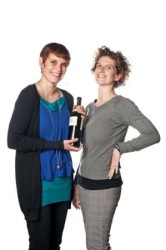
When choosing our company’s name we wanted something that could pay tribute to the territory that welcomed us: the land of Chimera and Minerva (the two Greek goddesses), and so we chose the name Tunia , who was actually one of the most important goddesses of the Etruscan pantheon and, by coincidence (!) watched over the ripening of fruits.
Why did you decide to practice organic farming?
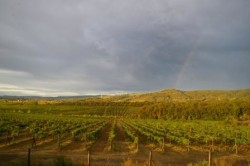
But this was not enough: even products based on copper and sulphur (allowed in organic farming) have unpleasant side effects.Copper has a great environmental impact: it is a heavy metal and it accumulates in the ground leading to an overall decrease of the soil’s biological activity. Sulphur, on the other hand, is toxic for all insects, including those that are useful in the vineyard, and can interfere with the fermentation of the must.
For all these reasons – and because many of the products used in organic farming contain synthetic additives (which seems a bit contradictory) – we decided to minimize treatments and to use the most environmentally friendly substances in the circumstances where those can’t be avoided.
However, in order to do this, you must create a healthier “vineyard environment “, that is able to better react to pests attacks. A vineyard is a bit like a person being run down or in good health when a flu is around: if overall you feel good and have a good immune system , you will probably get away with the cold!
Most of the wineries are long established family business. Explain how different your story is from this stereotype.
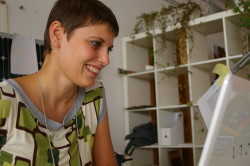
At the end, it all happened more quickly than we had foreseen. All we had to do was to decide that our destination was Arezzo Province and in a very short time we found our ideal site. And so Tunia was born.
To be honest, the planning period gave us sleepless nights: when I was still living in Milan and Francesca was in Sassari (Sardinia) we used to meet – either at her home or mine –trying to understand whether the dream of creating a place of our own could become a reality. Thank God, Andrea came along and helped us to set down some numbers, and it was then that we realized things did not exactly add up, but it was worth a try! In a flash things were already happening.
Usually, when you are thinking of starting out from scratch, your family or friends step in to make you change your mind; luckily, it didn’t happen to us and, on the contrary, my friends became my business partners and we took the big step together!
Giving that your company is led by young people, what kind of challenges do you think young graduates entering the wine industry would encounter in Italy?
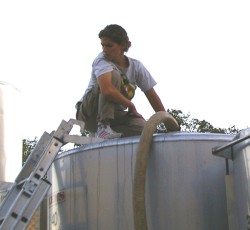
If young people decide to take this road, they must be aware that, as our grandparents used to say, you can’t work the ground standing up (you need to bend down), you have to work it when outside is cold (and when it’s too hot as well), boxes full of grapes are too heavy and that’s not enough…in order to make the company work you need to be flexible and spend full days in front of a laptop, learn languages, develop business, marketing and sales skills and spend hours and hours in a queue inside public offices and be patient with Italian bureaucracy and complex legislation. In summary, the very first challenge is to be aware of what leading your own enterprise means that Is being a 360° manager.
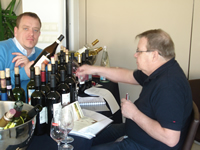
If you are a wine importer and interested in organic wines then you may be eligible to attend the Workshop BMIC as an invited buyer.
Sofia Sagripanti
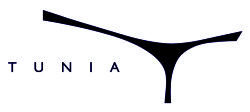
0 Comments